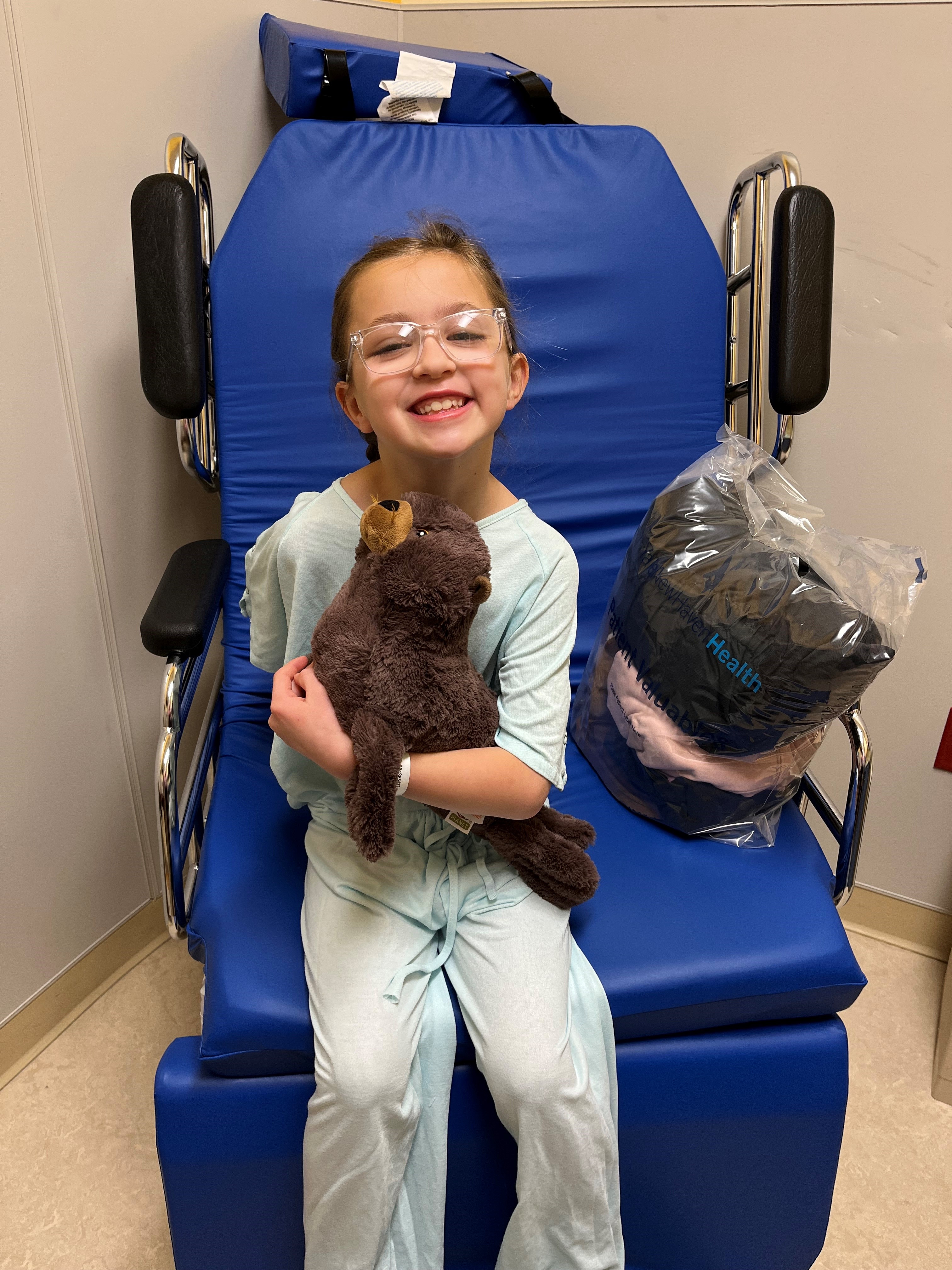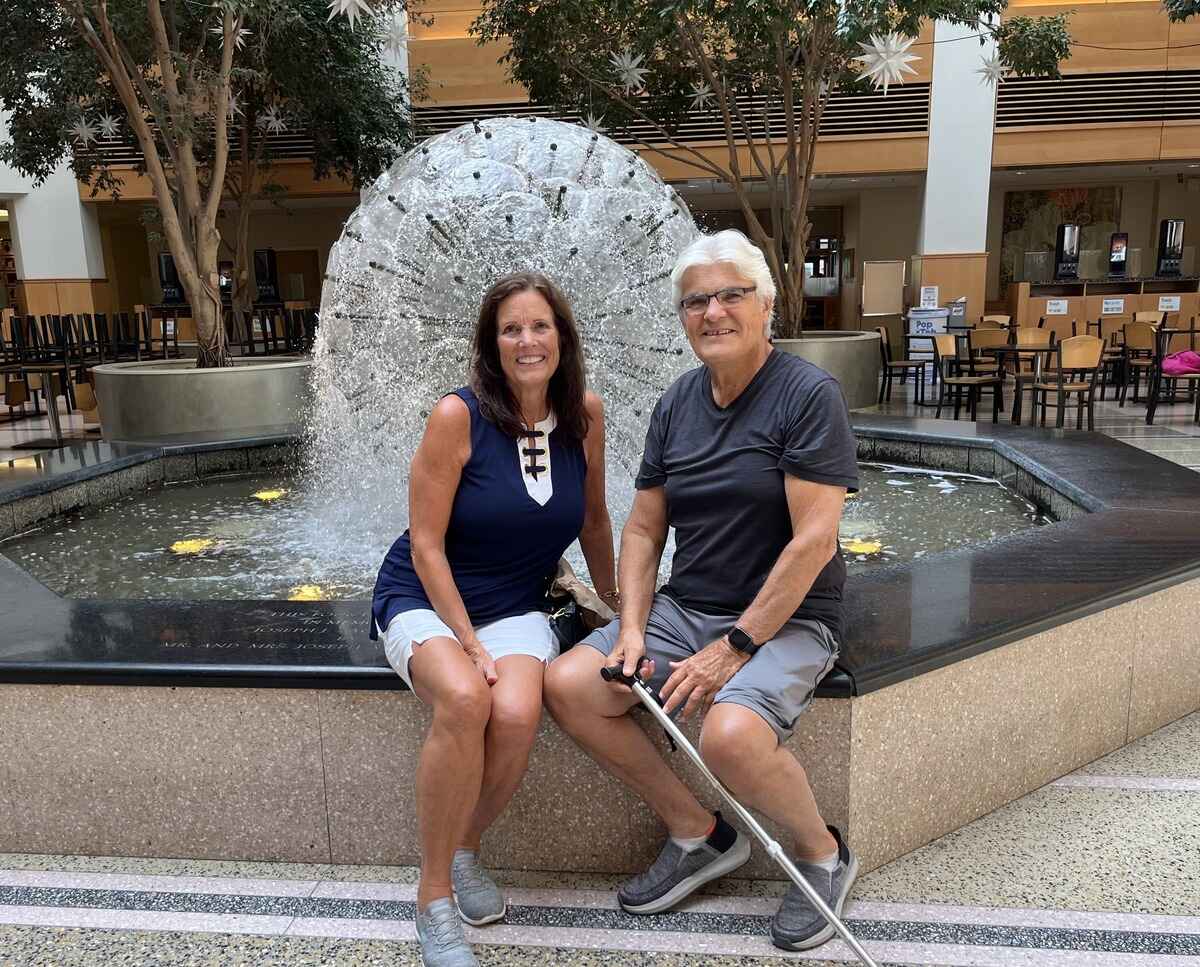Despite having spent 40 years in the research laboratories at Yale in the Department of Orthopaedics & Rehabilitation and well versed in the inner workings of the human body, Dr. Mark Horowitz was shocked to learn that his diagnosis of head and neck cancer was caused by a virus known as the human papillomavirus (HPV). Dr. Horowitz was having trouble breathing and sought the advice of an urgent care doctor, who recommended he get a neck ultrasound. The ultrasound revealed a neck mass and a biopsy later confirmed that it was HPV-positive squamous cell carcinoma.
Aarti Bhatia, MD, MPH, Assistant Professor of Medicine (Medical Oncology) and Dr. Horowitz’s oncologist commented, “The oropharynx (tonsils and back of the tongue) is the most common site where HPV-associated head and neck cancers arise. About 70% of all oropharyngeal cancers are HPV-associated in the United States and the incidence is rising every year. However, when the right combination of treatments is administered, HPV driven head and neck cancers carry a more favorable prognosis and are very responsive.”
Dr. Bhatia went on to explain that every newly diagnosed patient with head and neck cancer at Smilow Cancer Hospital is tested for the presence of viral proteins and DNA in the tumor biopsy to determine if they have an HPV driven cancer or not. Research has shown that they have a more favorable prognosis and can be cured with less intense treatments, and several clinical trials are ongoing to explore less difficult and novel treatments for this disease.
After undergoing a grueling regimen of chemotherapy and radiation, which had worked to shrink the tumor, Mark and his wife Sharon thought they were in the clear. But some of the tumor persisted, and Benjamin Judson, MD, Professor of Surgery (Otolaryngology), wanted to act fast to make sure all the tumor was removed. The only way to ensure this was to undergo a 12-hour surgery where Dr. Judson would remove the remaining tumor and some surrounding lymph nodes, followed by a complex reconstruction performed by Saral Mehra, MD, MBA, FACS, Associate Professor of Surgery (Otolaryngology). Dr. Mehra completed the reconstruction using skin and vessel graft from Dr. Horowitz’s left arm.
“This multidisciplinary approach was critical. To have the two surgeons working together was invaluable. I never once questioned whether or not I would survive this cancer, but I knew the surgery would be very complicated and long. Dr. Judson assured me that he did not foresee any issues and his experience with this type of procedure calmed my nerves.”
Following surgery, Dr. Horowitz was moved to a special inpatient unit at Smilow Cancer Hospital dedicated to the care of head and neck cancer patients after surgery. The inpatient team, spearheaded by Dr. Mehra, focuses solely on the difficult recovery process that patients with head and neck cancer face, while also avoiding a stay in the ICU, which can prolong recovery. Every person on the floor is aware of all complications that may arise, which was a comfort to Dr. Horowitz, but also to his family. Prior to the surgery a tracheotomy was done to secure his airway and in order to access the tumor, his jaw had to be separated.
The first time Dr. Horwitz saw himself in the mirror he was in disbelief, but experienced no pain and has since regained mobility and improved his speech and swallowing significantly with the help of specially trained Smilow staff. He still does personalized exercises every day to further increase his mobility and has been very pleased with the results. “This was an arduous process, but it has extended my life and for that I am grateful,” said Dr. Horowitz. “Not every day is a good day and that is okay, but you will get through it. I was lucky to receive top notch care from the bottom up; nurses, the residents that did rounds, the custodial staff and transport teams all were amazing. I felt completely safe and cared for at all times.”
Now Dr. Horowitz is back in his orthopaedics lab among his bones and skeletons doing what he loves best. He still sees Dr. Judson every three months for follow-up, and has anxiety before every appointment, but remains resilient. He claims that a positive attitude and the unending support of his wife have helped him through the hard times and although he is constantly reminded of what he has been through, he wouldn’t change how far he has come and the life he has gained.




